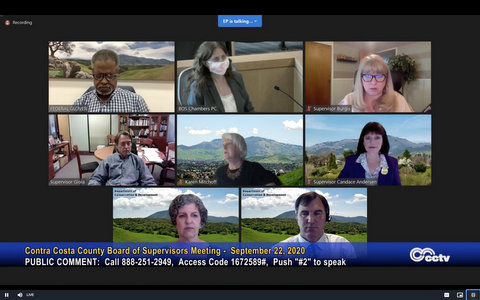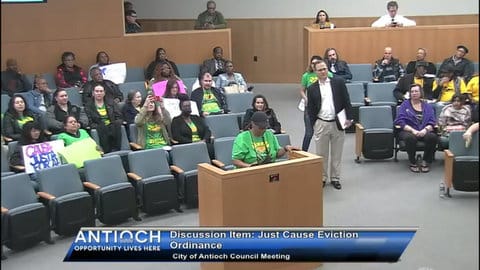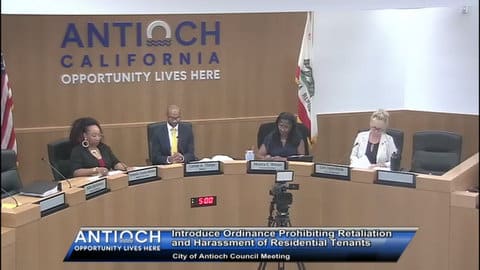
23 Sep County Supervisors Vote to Extend Residential Eviction and Rent Increase Moratorium

(Screenshot by Edward Booth / The CC Pulse)
By Edward Booth
On Tuesday, the Contra Costa County Board of Supervisors voted unanimously to modify and extend the county’s eviction moratorium in light of action taken by the California Legislature at the end of August.
AB 3088, also known as the COVID-19 Tenant Relief Act of 2020, was passed into law Aug. 31 and takes priority over most of the eviction protections that had been maintained by the county since April. A federal eviction protection order was also sent out early this month. But it doesn’t take priority in states with equivalent or stronger protections, so it’s likely that the state order takes precedence, said Mary Ann Mason, chief assistant county counsel, when the item was introduced two weeks ago.
The law essentially takes all rent past due from March through Aug. 31 and says it can’t be used as the basis for an eviction; the amount due is instead convertible to consumer debt. This means that landlords can go to court starting March 1, 2021, to receive a judgement for repayment of the unpaid rent, but they can’t use the nonpayment to have tenants thrown out.
The same protection applies similarly to unpaid rent due between Sept. 1, 2020, and Jan. 31, 2021, as long as tenants pay at least 25% of their rent for that period five days before the end of January. Protected tenants are those able to file a declaration stating how COVID-19 interfered with their ability to pay rent.
The state law replaces most areas of the county eviction protection but not all. The county ordinance passed Tuesday includes greater protections for just-cause evictions and a moratorium on residential rent increases. The ordinance also prohibits landlords from terminating a resident’s tenancy if the resident allowed an unauthorized person to live in the unit, given that the person is an immediate family member who is living there because of the pandemic.
A grace period for rent repayment from small commercial businesses with less than 100 employees was also considered, but county staff determined that the county doesn’t have the authority for that, Mason said.
Evictions can be carried out if they fall into the three exceptions listed in the ordinance: if it’s necessary to protect the health and safety of the owner or another tenant; if the owner or a family member intends to occupy the property; and if the the eviction is carried out via the Ellis Act, which allows landlords to evict residential tenants for the purpose of taking the rental property off the market.
In other news, the county is set to loosen COVID-19 restrictions next week as it now meets the criteria to move from the state’s purple tier, which means COVID-19 transmission is “widespread,” to the red tier, which means transmission is “substantial.” These metrics will need to be met for an additional week before the county can officially move tiers, which would happen next Tuesday.
Moving to red will allow the opening of indoor personal care services, indoor restaurants at 25% of building capacity, indoor gyms at 10% of capacity, places of worship at 25% capacity or 100 people maximum, and movie theaters at 25% capacity, according to county health officer Chris Farnitano.
If the numbers remain in the red range for another two weeks, and don’t spike back up to purple, K-12 schools will be able to reopen without a waiver, provided they follow state and local guidelines. Currently, only elementary schools may reopen if they receive a waiver from the county.
Farnitano said though the state’s blueprint for reopening is more cautious than it was previously, the county still needs to pay attention to possible surges as businesses reopen. Additionally, the holidays are coming up. The county issued a press release last week to recommend county residents not to go trick-or-treating, to haunted houses or to big holiday gatherings.
“We still don’t know whether these reopenings will lead to other surges,” Farnitano said. “And we have to watch the numbers carefully and be prepared to impose additional restrictions if we start to see another surge of cases, like we did see in July.”





No Comments